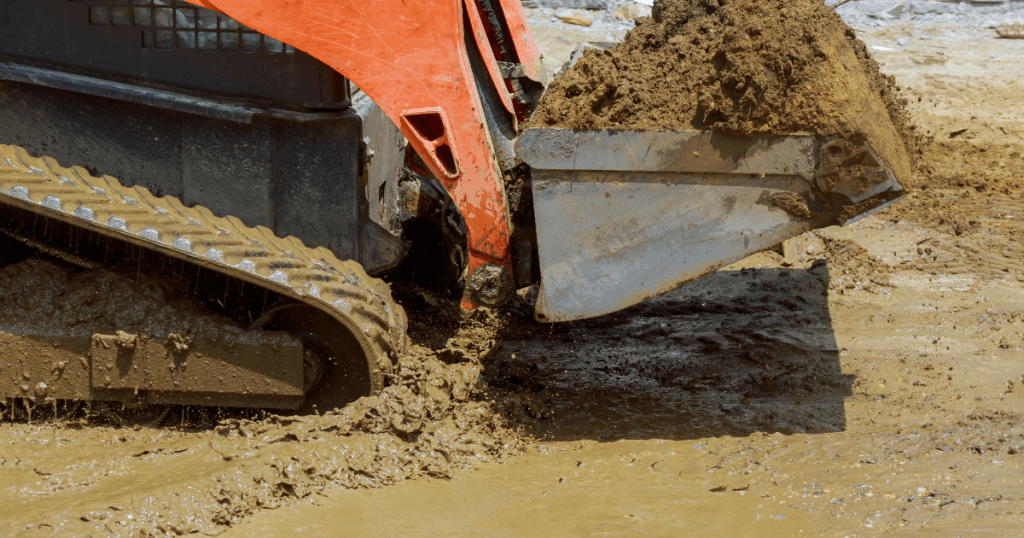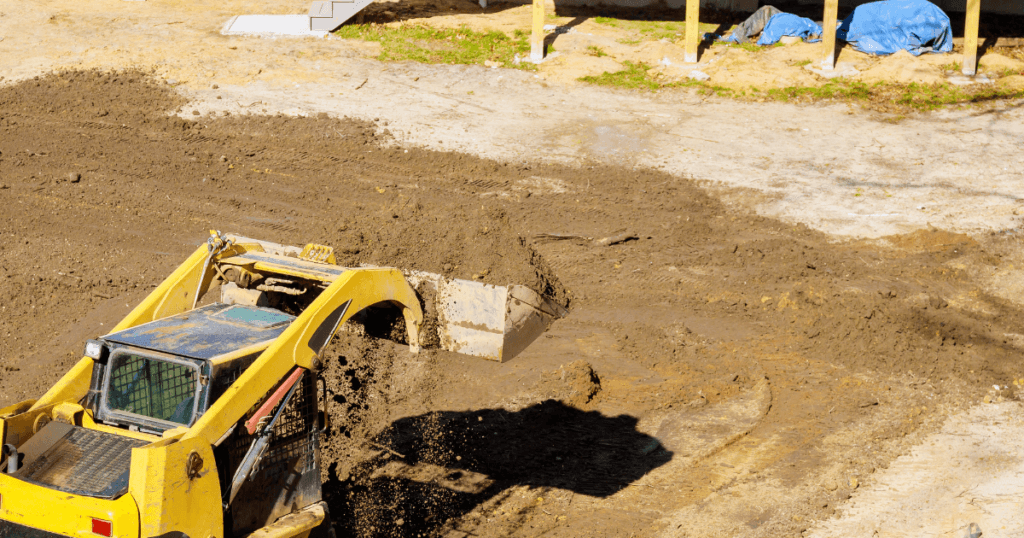Land grading is a crucial step in many construction and landscaping projects. Understanding the costs associated with land grade is essential, whether you plan to build and upgrade a residential property, or fix drainage problems.
In this guide, we’ll break down what residential land grading is and explore the factors that affect its cost. Read on!
What is Land Grading?
Land grading involves altering the contour or slope of the ground to achieve a desired level or gradient. This process serves many functions beyond ensuring stable foundations; one primary goal of land grading is mitigating adverse drainage effects.
When water accumulates around structures due to improper grading, it can cause foundation damage, soil erosion, and create mosquito breeding grounds — all serious threats for which proper drainage solutions must be put in place.
These issues not only compromise the integrity of your property but also pose health and safety risks. Land grading is used to create slopes that are suitable for landscaping or flat surfaces for building patios, fences, and swimming pools. It is a meticulous task that requires expertise, equipment, and an understanding of the site’s topography.
What is the difference between land leveling and grading?
Land grading (also known as yard grading) forms the overall terrain to manage water drainage, while yard leveling creates an even surface suitable for construction in the graded area.
While grading covers an entire site, leveling focuses on specific locations where construction will occur. Both processes work together to ensure a well-prepared construction site.
Estimated Costs of Residential Land Grading
Land grading costs can vary considerably, depending on multiple factors. Homeowners typically pay an average land grading cost of approximately $0.08 to $2.00 per square foot, according to Lawn Love.
Remember that the specific details of your project can determine its final total cost; conversely, smaller DIY projects or land with already cleared surfaces can often yield lower expenses.
Let’s explore these factors in more detail.
Factors That Affect the Cost of Land Grading

Project Size and Accessibility
Size plays a huge part in determining project costs; homeowners with 1,000 to 2,000-square-foot lots should anticipate paying between $770 and $3,000. Grading an acre of land typically ranges between $15,800 and $44,535 with an estimated national average cost of $30,000.
Extensive properties often require additional labor and equipment to complete, driving up the overall costs. Furthermore, any obstacles like trees, stumps, or structures obstructing access may add further complexity and increase expenses accordingly.
Soil and Terrain
Rocky terrain or trees present can increase costs. Expect to pay an additional $50 per cubic yard when working with rocky soil as it requires extra effort and equipment to level.
Trees on your property may incur extra expenses depending on their number and maturity. Topsoil landscaping grading or sod lawn installation could incur further charges too. Be prepared for additional expenses in these situations.
Dirt Removal and Fill
As part of leveling a slope, cleanup debris removal and hauling may be required. This adds cost as you’ll incur expenses for labor, dump trucks, and backhoes.
Fill dirt cost typically ranges from $8 to $15 per cubic yard, but this cost does not include the labor required to spread it.
Drainage
Proper drainage is crucial for preventing water-related issues on your property. If your project requires a drainage system to manage water runoff, you can expect an additional expense.
Permits
Depending on your location and the scope of your project, you may need permits for land grading. Permit fees can vary widely, with more extensive projects incurring higher costs. It’s essential to check the specific requirements for land grading permits in your area.
Land Survey

Topography plays an integral part in your property costs. A steep slope or uneven ground or terrain may necessitate additional excavation and dirt-filling work, increasing grading expenses.
A recent topographic survey of your property is needed before starting a land grading project. Typical costs range between $500 to $1,200 depending on its size and complexity.
Equipment and Labor
The cost of equipment and labor can vary based on the complexity of your project. Equipment like excavator, skid steer loader, or backhoe typically range from $100 to $300 per hour, according to HomeGuide. The cubic yards of dirt that need leveling also influence labor costs, ranging from $50 to $200 per cubic yard.
Grading sloped areas require additional effort and costs due to the need to move dirt between various sections. A land grading professional must move the earth from one area to the next when they complete this work.
[Related: How To Hire The Best Earthworks Construction Company In Prescott, AZ]
Need a Residential Land Grading Pro?
Budgeting for your project is easier when you know the factors that affect land grading. If you are preparing to build a new property or have drainage problems, it is essential that you invest in land grading.
Consult local grading contractors to get multiple estimates and to ensure that you receive the right quotation.
Aspire Construction Group has built hundreds of homes in Central Arizona for over 20 years. Trust us to build your dream property, too! Contact us today for a comprehensive project estimate.

